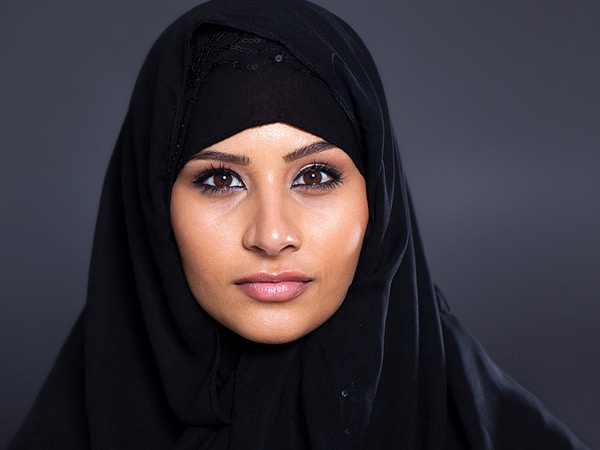Encouraging Muslim Women to Get Mammograms
Study suggests working within religious framework may help ease cultural barriers to cancer screening procedure.

Muslim women in America are less likely than women of other faiths to get mammograms on a regular basis.
Several tenets of the Islamic faith may limit the willingness of Muslim women to undergo the breast cancer screening procedure, said Aasim Padela, MD, MSc, director of the Initiative on Islam and Medicine, associate professor of medicine in the Section of Emergency Medicine, and an associate investigator of the Comprehensive Cancer Center at the University of Chicago.
For example, some Muslim women believe that God controls diseases and cures. Therefore, Padela said, some may feel that cancer screening is not beneficial.
Also, because the Islamic faith places a high priority on modesty, many Muslim women may feel discomfort exposing their bodies for mammograms or having male practitioners, Padela explained.
Padela and colleagues wondered if they could encourage more Muslim women to undergo mammograms if they designed targeted interventions that emphasized the importance of breast cancer screening while respecting the women’s religious beliefs. The U.S. Preventive Services Task Force recommends that women between ages 50 and 74 get screening mammograms every two years; younger women are encouraged to consider risk factors and decide with their doctors when to begin receiving mammograms.
Padela and colleagues conducted focus groups and interviews with women from Muslim organizations, seeking to learn about their beliefs about mammography. They then designed a curriculum and messages for a series of health education classes to be held in Chicago-area mosques. They recruited peer educators from the mosques, and taught them messages to use in conjunction with talks from physicians and breast cancer surgeons.
For example, Padela said, the peer educators told the women that while God may control disease, religious teachings also stress that women must be good “stewards” of their bodies, so it is important to obtain information about one’s health.
To reframe the women’s feelings about modesty, Padela said, “We reflected with them that while maintaining modesty is critically important, it is not the ultimate value. Religious scholars note that if no option is available, mammography can be performed by a male technician. However, we also shared that most centers have female staff.”
Padela and his team surveyed participants before the classes, then again immediately afterward, six months after the classes, and one year after the classes. At the six-month follow-up interviews, 20 of 47 participants (42 percent) had already obtained a mammogram. Overall, the women reported being significantly more likely to get a mammogram than they had been before the classes.
“It’s a challenge to frame healthy behaviors within the context of religious beliefs and cultural values,” said Padela, who presented results of the study at the 10th AACR Conference on The Science of Cancer Health Disparities in Racial/Ethnic Minorities and the Medically Underserved in September. “But we believe that by engaging with such deeply held aspects of identity, we can meet people where they are and encourage them to uphold their beliefs in a way that also benefits their health.”
Padela said the study’s primary limitation was its small size. Also, because the participants were regular attendees at their mosques, they may have been more religious than the Muslim population as a whole and, as such, these findings may not be applicable to the broader Muslim population.
